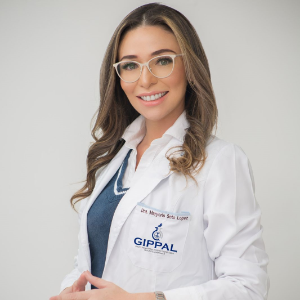Title : First report of bacteriophages for bio control of salmonella enteritidis at the north Colombian coast in typical Caribbean cheese (queso costeño)
Abstract:
Queso costeño is an autochthonous product of the Colombian Caribbean coast. It is made manually from raw milk and unfortunately, it has been associated with foodborne illnesses in the past, due to the presence of pathogenic microorganism such as Escherichia Coli and Salmonella Enteritidis, they belong to the family of Enterobacteriaceae and are found in the gastrointestinal tract of warm-blooded animals. To face this issue, it has been used bacteriophages as biocontrolers, which are semi-autonomous biological entities that by nature infect bacteria, have high host specificity, can be added to foods without affecting the quality or sensory of foods, and they do not cause harmful effects in humans and animals; they are also ubiquitous, so they can be isolated from multiple sources. Therefore, bacteriophages specific to Salmonella Enteritidis (ATCC 13076) were isolated from samples obtained from typical caribbean cheese-producing microenterprises in Cereté and Lorica (Córdoba, Colombia).The isolation and quantification methods followed protocols outlined by López et al. (2016), Nascimento et al. (2022) and Soto López et al. (2015) utilizing Brain Heart Infusion (BHI) broth and agar, as well as magnesium sulfate to activate the host cell and isolate the bacteriophages. Samples (queso costeño) were diluted at the proportion of 1:2 in magnesium sulfate buffer. The suspensions were incubated in shaker at 150 rpm and 28 °C for 24h to allow phage migration to buffer. Subsequently, the samples were centrifuged at 4.000g/30min/28°C and the supernatants were collected. All of the bacteriophages isolate underwent to a minimum of three successive rounds of serial plaque purification and final lysates were stored in magnesium sulfate buffer at 4 °C. For bacteriophages quantification, aliquots (100 μL) of diluted bacteriophages solution, 100 μL of a bacterial overnight culture (DO:0.5/600nm), and 5 mL of semisolid BHI agar were mixed and poured onto BHI agar plates. The plates were incubated overnight at 37 °C and the number of plaques was counted considering the appropriate dilution factors, providing between 10 and 100 plaques.
ELISA-QT, HM-QC y HM-QL bacteriophages were obtained from and whey samples and were found to effectively lyse Salmonella Enteritidis (ATCC 13076). ELISA-QT y HM-QL bacteriophages had high lytic activity, completely inhibiting bacterial growth after 24 hours with titers of 6.831 x 108 and 4.677 x 1010 PFU/mL, respectively. Furthermore, HM-QC phage showed moderate lytic capacity on the host cell. In this study, it was observed that ELISA-QT y HM-QL bacteriophages show promising potential as a biocontrol agent for S. Enteritidis in queso costeño.



